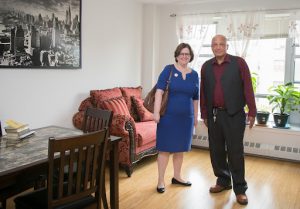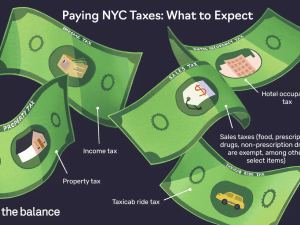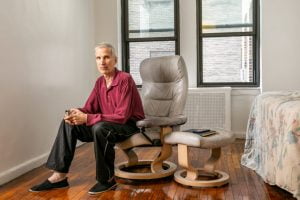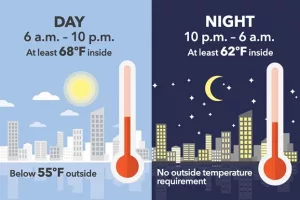2025 NYC Senior Citizen Homeowners’ Exemption (“SCHE”) Guide
Go Back To Previous PageEveryone knows how expensive living in New York City and New York State is. It’s one of the most expensive cities in America and the world. So, anyone living there must take advantage of every tax break or exemption. One such tax break is the NYC Senior Citizen Homeowners’ Exemption (“SCHE”). Therefore, we’ll review everything you need about SCHE in this guide. For instance, this is the perfect article for you whether you’re a senior citizen, want to help out the senior citizens in your life, or want to know as much as possible about the tax laws in NYC. This guide will examine the NYC Senior Citizen Homeowners’ Exemption. Who’s eligible for the NYC Department of Finance Senior Citizen Homeowner Exemption?
living there must take advantage of every tax break or exemption. One such tax break is the NYC Senior Citizen Homeowners’ Exemption (“SCHE”). Therefore, we’ll review everything you need about SCHE in this guide. For instance, this is the perfect article for you whether you’re a senior citizen, want to help out the senior citizens in your life, or want to know as much as possible about the tax laws in NYC. This guide will examine the NYC Senior Citizen Homeowners’ Exemption. Who’s eligible for the NYC Department of Finance Senior Citizen Homeowner Exemption?
How to estimate your tax exemption and more. We present this information as if you’re looking into the tax exemption for yourself, for the sake of our readers.
What is the NYC Senior Citizen Homeowners’ Exemption?
First, as the name suggests, the New York City Senior Citizen Homeowners’ Exemption is a tax break designed for senior citizen homeowners. More specifically, it helps older citizens who own a one-, two-, or three-family home in NYC.
specifically, it helps older citizens who own a one-, two-, or three-family home in NYC.
For instance, these homes can be houses, condominiums, or coop apartments. As long as a senior citizen owns them, they can potentially qualify.
Therefore, at its core, the SCHE offers older citizen homeowners a potential reduction of 5% and 50% of the property tax on their home(s). Getting a tax break of up to 50% of your property value can be substantial in NYC. However, not everyone qualifies.
The Senior Citizen Homeowners’ Exemption allows seniors (age 65 or older) with an annual income of $58,399 or less to reduce the property tax bill on their primary residence in NYC. This is accomplished by reducing the taxable assessed value of a qualifying senior’s home by up to 50%.
Let’s examine the eligibility requirements for this exemption to determine whether you can take advantage of it.
Who is Eligible for the SCHE in NYC?
As mentioned, not everyone is eligible for the NYC Department of Finance Senior Citizen Homeowner Exemption. Eligibility is based on age, income, residency, and property ownership.
Therefore, to be eligible, you must meet all of the qualifications listed below:
- Age — You must be at least 65 years of age or older. If you own the property with a spouse or a sibling, only one of you must be 65. Besides, if you own it with others (besides a spouse or sibling), everyone needs to be 65 years old or older.
- Income—All owners’ combined annual income (whether the owner and their spouse or the owner and a co-owner) must be $58,399 or less. This includes all forms of income, including salary, self-employment income, dividends, Social Security, retirement payments, IRA earnings, capital gains, and more.
- Residency — You must be using the property as your primary residence. This is true for all owners, whether that is a spouse, sibling, or other co-owner. If you’re receiving in-patient care at a medical facility and technically living there, you can still qualify for the tax break on the property.
- Property Ownership—You must have been the property’s registered owner for 12 months before applying for the exemption. If you use your previous residence to claim the exemption, this does not apply.
Automatic Disqualifications of the NYC Senior Citizen Homeowners’ Exemption
Regardless of whether or not you meet the above qualifications, the following list comprises the things that will automatically disqualify you from receiving the benefits of the SCHE.
receiving the benefits of the SCHE.
Therefore, if any of the following three things are true for you, then you are not eligible:
- You already received the Disabled Homeowners’ Exemption (DHE), so you cannot receive both tax breaks concurrently.
- Or, you own the property through your Limited Liability Company (LLC) rather than yourself, and it has to be owned by you, the individual.
- Lastly, you already receive exemptions through the 421a or 421b exemption program, and you cannot receive exemptions from these and the SCHE simultaneously.
You are eligible for the tax break if you meet all the eligibility requirements and don’t meet any automatic disqualifiers.
How do You Estimate Your Tax Exemption?
First, taxes are one of the most confusing times for just about everyone who pays taxes in this country. All the different forms are sent through mail and e-mail. Then, there are various streams of income that you need to keep track of.
Do you owe money, or will you be getting a refund? Which tax breaks or exemptions do you qualify for?
It can be a stressful time for many people.
When discussing the Senior Citizen Homeowners’ Exemption, you discuss potentially saving money.
Even though keeping track can be stressful, using every break is essential. Thankfully, New York City makes the SCHE reduction reasonably straightforward to estimate.

The exemption changes wildly with just a slight change in total income.
So, you must nail down your total income and take all the deductions you can.
Ensuring you take advantage of everything you can will make a big difference financially when tax time comes around.
As a quick note to drive this point home, if you barely qualify for the exemption with an income of $58,000, you’ll get to reduce your property tax bill by 5%. However, if you can write off $8,000 of income and bring your combined income down to $50,000, you can reduce that property tax year by a whopping 50%. So that’s how quickly this tax break scales.
So, without further ado, here is the breakdown of what the NYC Senior Citizen Homeowners’ Exemption can do for you. Therefore, take advantage of everything you can, and best of luck come tax time.
| Income Range – Tax rate | SCHE property tax exemption by |
| $58,400 and Above | Ineligible |
| $57,500 – $58,399 | 5% |
| $56,600 – $57,499 | 10% |
| $55,700 – $56,599 | 15% |
| $54,800 – $55,699 | 20% |
| $53,900 – $54,799 | 25% |
| $53,000 – $53,899 | 60% |
| $52,000 – $52,999 | 35% |
| $51,000 – $51,999 | 40% |
| $50,001 – $50,999 | 45% |
| $50,000 and Less | 50% |
Also, you can call 311 to request a renewal application.
Lastly, if you inherit your deceased parent’s home, the Department of Finance will remove the Senior Citizen Homeowners Exemption NYC. To conclude, the recording of a deed, except for a life estate deed, automatically revokes the following exemptions:
- Basic or Enhanced School Tax Relief (STAR)
- Senior Citizen Homeowner Exemption (SCHE)
- Disabled Homeowner Exemption (DHE)
- Veterans or Clergy Exemption


